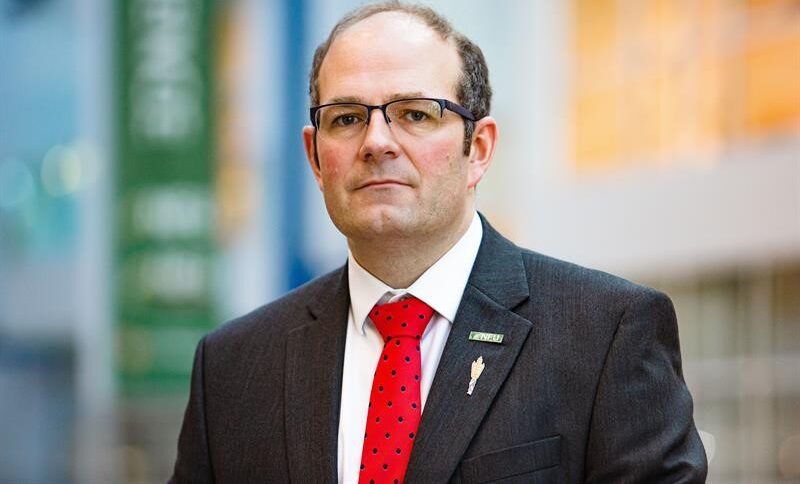NFU president Tom Bradshaw has met privately with prime minister Sir Keir Starmer to discuss farmers’ concerns over the ‘family farm tax’, after an NFU petition calling for it to be dropped was signed by more than 260,000 people.
The meeting, held at the PM’s invitation at 10 Downing St on Monday 25 November, covered a range of critical topics, including planned inheritance tax (IHT) changes, food security, the domestic market, public procurement, trade standards, and the future of British farming, Farmers Weekly reports.
While the NFU maintained confidentiality on the detailed discussions, Mr Bradshaw confirmed that the conversation addressed the potential impact of alterations to agricultural property relief (APR) and business property relief (BPR) on family farms.
Speaking in a vlog following the meeting, he said: “This afternoon, I had the privilege of being invited into 10 Downing Street by the prime minister. We’ve been able to present our side of the discussion around what changes to APR and BPR are going to mean for you, your family, and your future.”
Mr Bradshaw said Sir Keir was ‘in listening mode’ and expressed hope that the concerns raised would lead to meaningful action. “When we talk about the very real human impacts, the viability of family farms, and the low returns from producing the country’s food, these are all conversations we’ve picked up this afternoon,” he added.
He also pushed for comprehensive impact assessments on current policies, especially on farm IHT, to evaluate their effects on food production, environmental goals, and business sustainability
Last week, an estimated 13,000 farmers and their supporters descended on London to demonstrate against the government’s plans to reform Agricultural Property Relief to introduce IHT at 20% IHT on farm assets worth £1m or more from April 2026.
As a petition against the policy topped 260,000 signatures, the NFU highlighted data it commissioned showing Labour is not trusted by its 2024 voters on issues surrounding the impact of the Budget on farmers.
The polling, carried out by Portland, shows that changes to inheritance taxation on family farms are unpopular, and that perceptions that Labour does not value rural voters as highly as urban ones are building.
It showed:
- IHT on farms is the joint most unpopular measure in the Budget, tied with changes to pensions.
- Two thirds (65%) of the public do not think that the Government has fully considered the impact of its planned changes on family farms
- IHT on farms is ranked the second least popular budget measure among 2024 Labour voters, with (21%) picking it, fractionally less unpopular than IHT on pension pots (22%),
- Only 17% of voters trust the Chancellor most to tell them about the impact of this policy on farms, with 52% trusting ordinary farmers to tell them the truth.
- 49% of voters think the government is biased against the countryside, with only 26% disagreeing
- IHT on farms is also at the bottom of things which are popular with the public – just 8% agree with it.
In the days since the Budget, the NFU has repeatedly said to Treasury and government that its figures justifying the Family Farm Tax are wrong and will devastate family farms, putting many out of business.
Government suggests 27% of farms will be affected by changes to Inheritance Tax (IHT), namely Agriculture Property Relief (APR). In sharp contrast, detailed figures published by the NFU have showed 75% of farms stand to be above the £1m family farm tax threshold.
NFU President Tom Bradshaw said: “I am not surprised by this data. It shows the level of support for British farmers from people across the country. This is echoed with the 255,000 people that have so far signed our petition to Stop the Family Farm tax. Unfortunately for this new government, it also shows that, on the issue of changes to Inheritance Tax to working family farms, the majority of people are with us and believe this an unfair move.”
He called on the government to carry out an urgent and full review of the correct data and draw better conclusions.
“Without this change, farmers will be forced to sell off parts or all their farm businesses to pay huge tax bills, with added cost for pensions. All this puts additional costs to food producing businesses which are already operating on paper thin margins.
“Together with changes to the National Live Wage and National Insurance, I can’t see a scenario where food prices don’t rise, at a time when the public have already been hammered by a cost-of-living crisis.
“My message to government is clear; look at the evidence, stop this family farm tax and show your electorate you’re on their side.”




